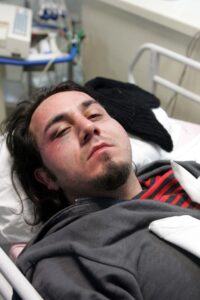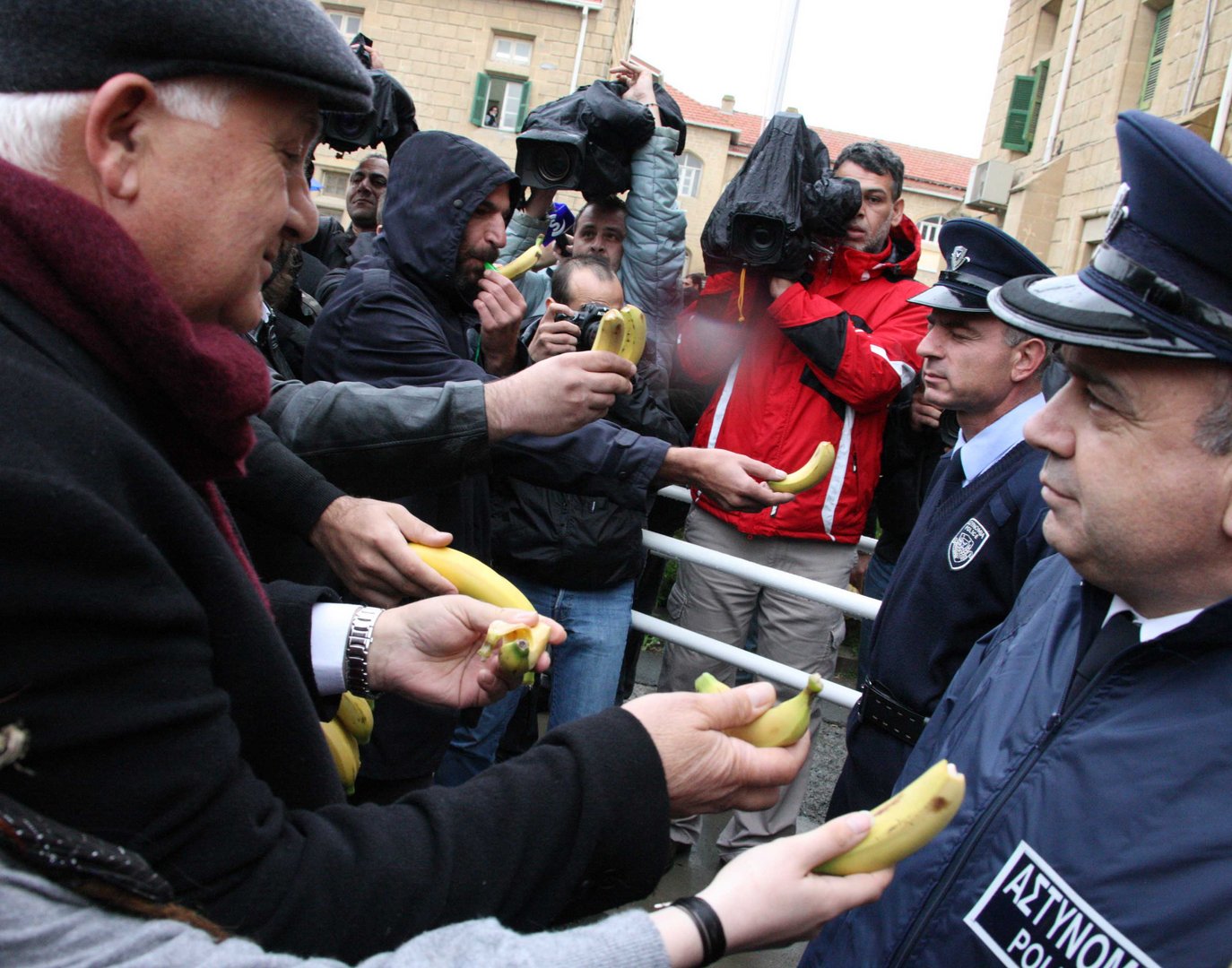Guilty officers have forced resignations rescinded
By George Psyllides
Few cases have highlighted the flaws in the legal system more than the fight for justice by two students severely beaten up by police in the early hours of December 20, 2005.
In the latest twist more than 15 year later, the supreme court last week upheld a decision to cancel the forced resignation of the three officers who, after two tortuous court cases, were finally found guilty of beating up the two young men.
The reason for the ruling is not that the supreme court rejected the guilty sentence but that the long delays in sentencing the officers violated their constitutional rights which protect defendants from excessive delays.
“Police do these things because the courts cover for them,” Yiannis Nicolaou, one of the victims of the beatings, told the Cyprus Mail this week.
And no one knows more about excessive delays than he does.
The basic facts of the case, and finally accepted by the courts, are relatively simple.
It started with the publication of a video showing a bunch of police officers kicking and punching two handcuffed men for about an hour on a Nicosia street on December 20, 2005.
The video was published by daily Politis newspaper in April 2006 and showed the officers abusing students Marcos Papageorgiou and Nicolaou, both aged 27.
The police had been looking for a night stalker who was attacking women in Nicosia.
The two men were reportedly dragged from their cars and handcuffed by plain-clothes officers after they refused to comply with search orders and asked to examine officers’ identity cards.
The men were punched and kicked intermittently for about an hour by around five officers from special immediate response and traffic units while another eight officers from the same units and the regular police mocked the suspects.
The pair were subsequently charged with resisting arrest and assaulting the police and causing grievous bodily harm. Papageorgiou was then admitted to hospital for treatment for cranial and arm fractures, and Nicolaou, who also had a fractured arm, was detained overnight without treatment.

Marcos Papageorgiou, one of the victims, in hospital after being beaten by police on December 20, 2005
Unbeknown to officers involved, the incident was being filmed from a nearby flat and the video was handed over to the attorney-general’s office. However, according to Politis, it had been ‘forgotten’ in a drawer somewhere until the paper got hold of it and published it four months later.
With it now in the public eye, the case became bogged down in two separate proceedings, one of which ultimately led to the recent supreme court decision. The court case brought by the victims clashed with the police force’s disciplinary proceedings against the officers. The two fed off each other, leading to endless delays.
The force launched disciplinary proceedings against the cops in July 2006, around a couple of weeks before the state filed a case before the criminal court against 10 officers.
Citing the trial, their defence requested and was granted, a suspension of the disciplinary proceedings.
Worse was to come. On March 19, 2009, the criminal court shocked everyone by acquitting the 10 officers who faced a variety of charges depending on their involvement. The court based its decision on what it said was the huge publicity given by the media, which had affected the trial by creating bias against the officers.
The state appealed. This allowed the police disciplinary committee to grant a further postponement pending the appeal filed by the state.
It took until March 23, 2010 for the supreme court to order a retrial with different judges, yet again allowing the police disciplinary committee to postpone hearing its own case against the officers.
On February 18, 2011, the criminal court gave them suspended sentences of 12 months after they admitted assault and causing grievous bodily harm charges.
Finally, the police disciplinary committee took action. In April 2011, it ordered the officers to pay the equivalent of eight days pay as punishment.
The decision was appealed, the council reconvened and imposed the penalty of forced resignation on three officers. This still meant they got to keep all their benefits.
The officers appealed the decision later that year and were vindicated in 2013. The decision was appealed by the state in 2014. And finally, on February 25 this year, the supreme court rejected the appeal.
It based its decision on Article 30.2 of the constitution, which seeks to protect defendants from excessive delays.
“In the determination of his civil rights and obligations or of any criminal charge against him, every person is entitled to a fair and public hearing within a reasonable time by an independent, impartial and competent court established by law,” according to the article.
“The seriousness of the defendants’ behaviour, which they have admitted, and penalties have been imposed on them by the criminal court, is not in dispute,” the supreme court said.
“Such behaviour is wholly unacceptable and insulting, first, for the defendants themselves. However, for the reasons we have mentioned, we judge that the right of the defendants, safeguarded by Article 30.2 of the constitution, is entirely affected.”
This decision will surprise few who were involved in the case from its beginnings. The cops’ initial acquittal in 2009 sparked large protests in Nicosia with people demanding justice.
“We shall fight until justice is done. We shall fight for a better society,” said Yiannakis Papageorgiou, Marcos’ father and prominent Nicosia gynaecologist, during one of the protests. He famously protested outside the Nicosia court with supporters waving bananas, proclaiming Cyprus a banana republic. Dr Papageorgiou died in 2013.
Nicolaou certainly does not think justice was done.
He told the Cyprus Mail that the courts essentially endorsed the officers’ violent and sadistic behaviour.
Nicolaou now lives in the UK, married with two children. Marcos was away until 2010 when he returned to Cyprus. The two are still friends but when they meet, they avoid talking about that night.
But the incident still weighs heavily on Nicolaou’s mind.
“It is not something one can overcome. It is something that stays with you your whole life,” he said.
Even today, despite living in the UK, “I feel uncomfortable when I see police.”
The government settled a lawsuit for damages out of court for an undisclosed amount but no one offered them an apology.
Only one of the officers who slapped Marcos once – not shown in the video – apologised. Perhaps it was to avoid being charged.
Fifteen years later, through controversial court decisions, none of the officers were really punished. On top of that, taxpayers had to pay the compensation for their actions.







Click here to change your cookie preferences